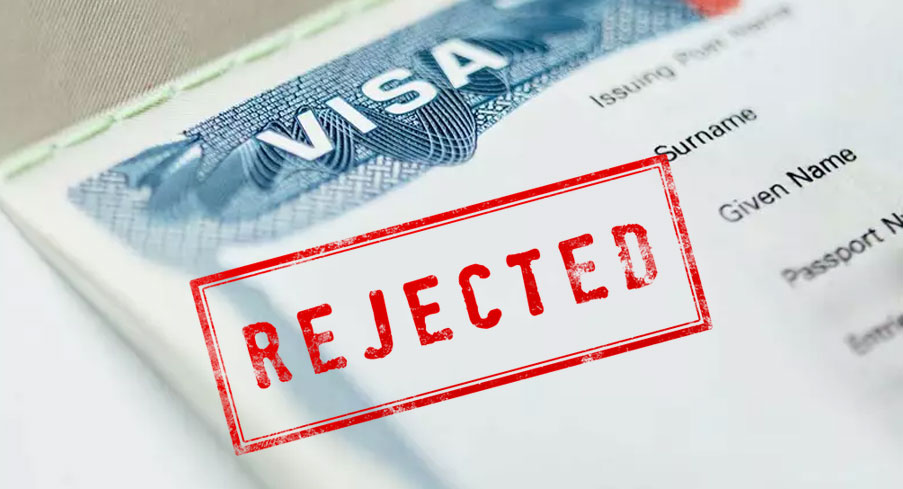Top Reasons Why Australian Visa Applications Get Rejected (And How to Avoid Them)
- February 10, 2025
- Posted by: Seo We Move Ads
- Category: Uncategorized

Australia is one of the most popular destinations for travelers, students, skilled workers, and immigrants. However, obtaining an Australian visa can be challenging, and many applications get rejected due to common mistakes and oversights. Understanding these reasons can help applicants avoid unnecessary delays and improve their chances of securing a visa. In this guide, we will explore the top reasons why Australian visa applications get rejected and provide practical solutions to avoid them.
1. Incomplete or Incorrect Documentation
Reason:
One of the most common reasons for visa rejection is submitting incomplete or incorrect documents. The Australian Department of Home Affairs requires precise and accurate documentation to process a visa application. Missing essential documents or providing incorrect information can lead to immediate rejection.
How to Avoid:
- Carefully review the document checklist for your specific visa category.
- Ensure all forms are filled out correctly and completely.
- Submit clear and legible copies of all required documents.
- Cross-check information across all documents to ensure consistency.
2. Failure to Meet Financial Requirements
Reason:
Applicants must prove they have sufficient financial resources to support themselves during their stay in Australia. Failure to provide adequate financial proof can lead to visa rejection.
How to Avoid:
- Provide bank statements, tax returns, and other financial documents as proof of funds.
- Ensure that your financial statements show stable and sufficient funds.
- If you are sponsored, include a sponsorship letter and the financial details of your sponsor.
3. Not Meeting Health Requirements
Reason:
Australia has strict health requirements for visa applicants to prevent the spread of infectious diseases and avoid burdening the healthcare system. If an applicant fails a medical exam or has an undisclosed medical condition, their visa may be denied.
How to Avoid:
- Undergo the required health examination from an approved medical panel.
- Disclose any existing medical conditions honestly.
- If you have a medical condition, provide supporting documents from a doctor detailing your condition and treatment plan.
4. Failing the Character Test
Reason:
Australia requires visa applicants to pass a character test, ensuring they have no serious criminal record. Applicants with past convictions or associations with criminal activities may face visa denial.
How to Avoid:
- Provide police clearance certificates from all countries where you have lived for 12 months or more.
- Disclose any past convictions honestly and provide relevant explanations or rehabilitation evidence.
- If necessary, seek legal advice to determine how to address character concerns in your application.
5. Lack of Genuine Temporary Entrant (GTE) Proof
Reason:
For student, visitor, and temporary work visas, applicants must prove they intend to return to their home country after their visa expires. If immigration authorities suspect an applicant plans to overstay, their application may be rejected.
How to Avoid:
- Submit strong proof of ties to your home country, such as employment, family, or property ownership.
- Write a compelling Genuine Temporary Entrant (GTE) statement explaining your intentions.
- Ensure your purpose of travel aligns with your visa type.
6. Insufficient English Language Proficiency
Reason:
Certain visa categories require proof of English proficiency, such as student, skilled worker, and business visas. Failure to meet the required language score can result in rejection.
How to Avoid:
- Take an approved English proficiency test (IELTS, TOEFL, or PTE) and achieve the required score.
- If you fail the test, consider retaking it after additional preparation.
- Provide exemption documents if English is your first language or if you studied in an English-speaking institution.
7. Inconsistencies in Information Provided
Reason:
Any inconsistencies in personal details, travel history, or previous visa applications can raise red flags. Authorities may suspect fraud or misrepresentation, leading to rejection.
How to Avoid:
- Ensure all details match across different documents (e.g., passport, bank statements, and application forms).
- Double-check previous visa applications for consistency.
- If there are discrepancies, provide a written explanation to justify them.
8. Previous Visa Violations or Overstay
Reason:
Applicants with a history of overstaying their visa or violating visa conditions in Australia or any other country may face rejection.
How to Avoid:
- Follow all visa conditions strictly if you have previously traveled to Australia.
- If you have overstayed a visa, be honest about it and provide a valid explanation.
- Demonstrate a strong commitment to complying with visa regulations.
9. Failure to Attend Visa Interview (If Required)
Reason:
For certain visa types, an interview with immigration authorities is required. Missing the scheduled interview without a valid reason can result in rejection.
How to Avoid:
- Check your email and messages regularly for interview notifications.
- Attend the interview on time and be well-prepared.
- Carry all necessary documents and answer questions honestly.
10. Applying for the Wrong Visa Category
Reason:
Applying for an incorrect visa type can lead to rejection because each visa has specific eligibility requirements. Choosing the wrong category may result in failing to meet those requirements.
How to Avoid:
- Research thoroughly before selecting a visa type.
- Use the Australian Visa Finder Tool on the official government website.
- Seek guidance from registered migration agents if unsure.
Final Thoughts
Getting an Australian visa approval requires careful planning, accuracy, and compliance with all requirements. By avoiding these common mistakes and following the best practices outlined above, you can increase your chances of visa approval significantly.
If you need professional assistance, consider consulting a registered migration agent to guide you through the application process. A well-prepared visa application increases the likelihood of approval and helps you fulfill your dream of visiting, studying, or working in Australia.
Need Help With Your Australian Visa?
At Mahi Visa Services, we specialize in assisting clients with all types of Australian visa applications. Contact us today for expert guidance and a hassle-free application process!
